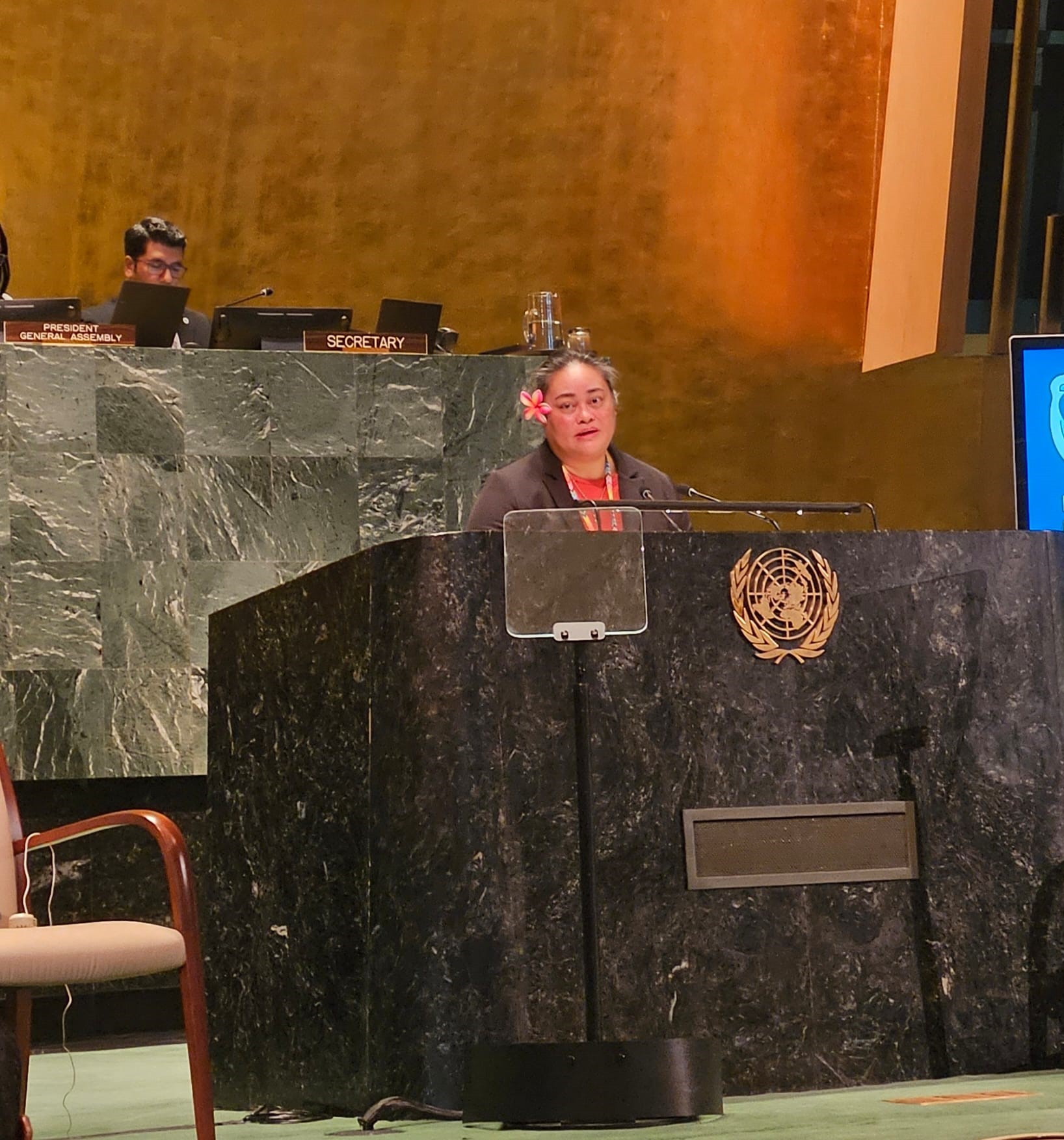STATEMENT
Tourism – the lifeblood of SIDS: UN High-Level Thematic Event on Tourism
April 16, 2024 AOSIS Chair – Matilda Bartley · Deputy Permanent Representative at Permanent Mission of Samoa to the United Nations Download PDFTopic: Sustainable Development

Statement on behalf of the Alliance of Small Island States (AOSIS) at the High-Level Thematic Event on Tourism Tuesday, 16 April 2024, 10 a.m. to 6 p.m. General Assembly Hall, UN Headquarters, New York I have the honour to deliver this statement on behalf of the Alliance of Small Island States (AOSIS). Tourism is one of the most important industries for SIDS, providing livelihoods and lifelines for SIDS populations, and driving economic development across these nations. In a couple countries tourism revenues are well over 88 percent of total exports. On average, the tourism sector accounts for almost 30 percent of the GDP of the SIDS, reaching over 50 percent for four of these countries. Tourism is a vital part of both formal and informal employment in SIDS. In the Caribbean tourism accounts for 27 percent of employment, while in Atlantic Indian Ocean and South China Sea (AIS) and the Pacific regions these levels are 24 and 20 percent respectively. With women accounting for more than half of global employment in tourism, this sector also plays a key role in supporting women’s economic empowerment. The revenue from this sector supported not only development but helped to pay for recovery and climate action for decades. For many SIDS, it is the primary resource base. Therefore, the impact of the COVID-19 pandemic was tremendous. Arrivals fell by 70 percent to pre-1990 levels, impacting revenue and livelihoods. Its effects reverberated across the three SIDS regions, highlighting the overt reliance of these countries on the tourism industry, and the fragility of their economies. Since then, tourism has rebounded in SIDS, reaching pre-pandemic levels. But what happens when the next crisis occurs, or should, as predicted, a more intense 2024 hurricane season bears down on these countries? Every topic in this week’s discussions on sustainability affects the other. The confluence of issues warrants a cohesive approach. SIDS are actively pursuing an integrated methodology. In line with our commitments under the Paris Agreement, we are striving to achieve the lofty goal of carbon neutral tourism by 2050. This also includes transport and other linked sectors. Furthermore, through the international plastic pollution negotiations, we are working to urgently eliminate single use plastics from this industry, and enforce stricter regulations on waste management, including on cruise ships. There is also great scope for expanding the conservation and protection of natural resources through tourism, which is particularly important for SIDS given their important role in protection of global biodiversity. However, it is crucial to have a clear understanding of the consequences of these transformative measures in SIDS. For example, transport is a significant factor determining tourist arrivals in SIDS, due to their isolated geographical nature. Therefore, an increase in fossil fuel taxes or levies could increase transport costs to SIDS more than other destinations. More due diligence is necessary to explore these potential impacts in SIDS, and ensure that the consequences of response measures do not curtail the tourism industry detrimentally. This is a discussion that we are following closely at the UNFCCC, and other relevant forums. As a primary income-earner, and livelihood provider, tourism sits atop other industries in most SIDS. A contextual, cohesive effort to support its sustainability is therefore important. I thank you.
Sub Topic:
____________________________